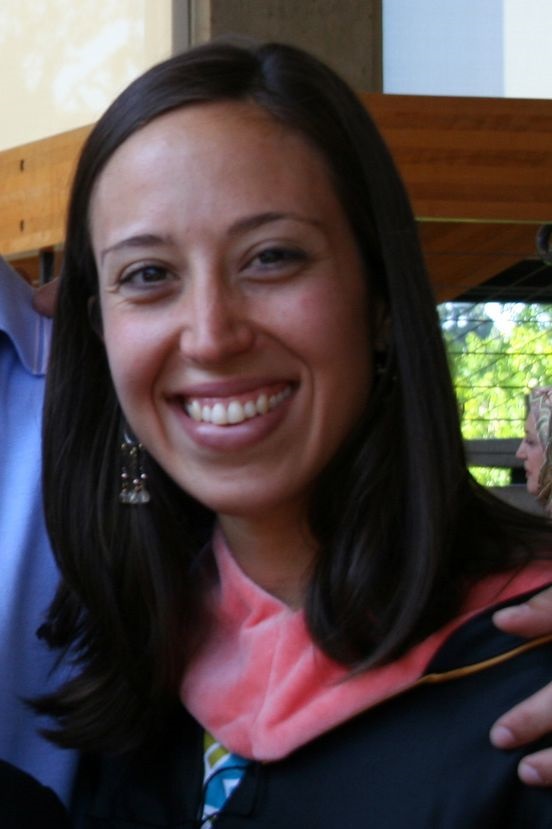Research Team
PRESTO is funded by the National Institutes of Health (NIH) and conducted by researchers at the Boston University School of Public Health (BUSPH).
Investigative Team
 Dr. Lauren A. Wise is Professor of Epidemiology at the Boston University School of Public Health (BUSPH). She is originally from Canada. She joined the BUSPH Department of Epidemiology in 2004 after completing her doctoral degree at the Harvard School of Public Health. Dr. Wise teaches Reproductive Epidemiology and Design and Conduct of Cohort Studies at BUSPH. She has an interest in reproductive and perinatal epidemiology. Her current research involves the study of risk factors for delayed conception, adverse pregnancy outcomes, and benign gynecologic conditions. Dr. Wise is Principal investigator of the Study of Environment, Lifestyle, and Fibroids (SELF), a prospective ultrasound study of uterine fibroids among 1,696 black women from Detroit, Michigan, and Principal Investigator of NIH-funded studies examining the influence of lifestyle, dietary, and genetic determinants of fibroids in the Black Women’s Health Study. Over the past decade, Dr. Wise has been collaborating with Drs. Hatch and Rothman on the Snart Gravid and Snart Foraeldre studies, on which she has investigated the associations of physical activity, obesity, and menstrual characteristics with fertility. Dr. Wise is Principal Investigator of PRESTO.
Dr. Lauren A. Wise is Professor of Epidemiology at the Boston University School of Public Health (BUSPH). She is originally from Canada. She joined the BUSPH Department of Epidemiology in 2004 after completing her doctoral degree at the Harvard School of Public Health. Dr. Wise teaches Reproductive Epidemiology and Design and Conduct of Cohort Studies at BUSPH. She has an interest in reproductive and perinatal epidemiology. Her current research involves the study of risk factors for delayed conception, adverse pregnancy outcomes, and benign gynecologic conditions. Dr. Wise is Principal investigator of the Study of Environment, Lifestyle, and Fibroids (SELF), a prospective ultrasound study of uterine fibroids among 1,696 black women from Detroit, Michigan, and Principal Investigator of NIH-funded studies examining the influence of lifestyle, dietary, and genetic determinants of fibroids in the Black Women’s Health Study. Over the past decade, Dr. Wise has been collaborating with Drs. Hatch and Rothman on the Snart Gravid and Snart Foraeldre studies, on which she has investigated the associations of physical activity, obesity, and menstrual characteristics with fertility. Dr. Wise is Principal Investigator of PRESTO.
 Dr. Elizabeth Hatch is Professor of Epidemiology at BUSPH. Dr. Hatch teaches Cancer Epidemiology at BUSPH and her research focuses on prenatal and childhood exposures in relation to long-term health outcomes, especially hormonally-related cancers, reproductive outcomes, and obesity. Prior to joining the faculty at BU in 2000, she was an investigator at the National Cancer Institute, where she led a large cohort study on the health risks of exposure to the synthetic hormone, diethylstilbestrol (DES) among women exposed during pregnancy and their offspring exposed in utero. She continues her involvement with the DES study as a co-investigator, and is researching whether DES can affect age at menarche, menopause and obesity among prenatally-exposed women. Currently, Dr. Hatch is principal investigator of a collaborative study of factors related to reproductive health in Denmark (Snart Foraeldre/Snart Gravid). Like PRESTO, these studies use internet-based recruitment and are evaluating factors related to fertility, miscarriage, and adverse pregnancy outcomes. Dr. Hatch is Co-investigator of PRESTO, and Principal Investigator of the Snart Gravid and Snart Foraeldre studies after which PRESTO is modeled.
Dr. Elizabeth Hatch is Professor of Epidemiology at BUSPH. Dr. Hatch teaches Cancer Epidemiology at BUSPH and her research focuses on prenatal and childhood exposures in relation to long-term health outcomes, especially hormonally-related cancers, reproductive outcomes, and obesity. Prior to joining the faculty at BU in 2000, she was an investigator at the National Cancer Institute, where she led a large cohort study on the health risks of exposure to the synthetic hormone, diethylstilbestrol (DES) among women exposed during pregnancy and their offspring exposed in utero. She continues her involvement with the DES study as a co-investigator, and is researching whether DES can affect age at menarche, menopause and obesity among prenatally-exposed women. Currently, Dr. Hatch is principal investigator of a collaborative study of factors related to reproductive health in Denmark (Snart Foraeldre/Snart Gravid). Like PRESTO, these studies use internet-based recruitment and are evaluating factors related to fertility, miscarriage, and adverse pregnancy outcomes. Dr. Hatch is Co-investigator of PRESTO, and Principal Investigator of the Snart Gravid and Snart Foraeldre studies after which PRESTO is modeled.
 Dr. Amelia Wesselink is a Research Assistant Professor in Epidemiology at the Boston University School of Public Health (BUSPH) and co-investigator of PRESTO. In June 2018, she graduated from BUSPH with a doctorate in epidemiology. Her dissertation research involved the study of environmental and psychosocial determinants of fertility, with a focus on environmental chemicals, cigarette smoking, and perceived stress. Dr. Wesselink has interests in environmental and reproductive epidemiology. Dr. Wesselink had a chief role in writing PRESTO’s R01 investigating air pollution, fertility, and miscarriage and is actively involved in overseeing all aspects of the E-PRESTO studies in Boston and Detroit. She is also co-investigator of the Study of Environment, Lifestyle, and Fibroids (SELF), in which she is examining the role of polychlorinated biphenyls (PCBs) and gynecologic disease. Dr. Wesselink recently received funding to investigate heat exposure and miscarriage within PRESTO.
Dr. Amelia Wesselink is a Research Assistant Professor in Epidemiology at the Boston University School of Public Health (BUSPH) and co-investigator of PRESTO. In June 2018, she graduated from BUSPH with a doctorate in epidemiology. Her dissertation research involved the study of environmental and psychosocial determinants of fertility, with a focus on environmental chemicals, cigarette smoking, and perceived stress. Dr. Wesselink has interests in environmental and reproductive epidemiology. Dr. Wesselink had a chief role in writing PRESTO’s R01 investigating air pollution, fertility, and miscarriage and is actively involved in overseeing all aspects of the E-PRESTO studies in Boston and Detroit. She is also co-investigator of the Study of Environment, Lifestyle, and Fibroids (SELF), in which she is examining the role of polychlorinated biphenyls (PCBs) and gynecologic disease. Dr. Wesselink recently received funding to investigate heat exposure and miscarriage within PRESTO.
 Dr. Renée Boynton-Jarrett is a pediatrician and social epidemiologist. She is Associate Professor of Pediatrics at Boston University School of Medicine. She received her medical degree from Yale School of Medicine and her doctor of science in social epidemiology from the Harvard School of Public Health. She is founding director of the Vital Village Network, which uses a trauma-informed lens to improve community capacity to promote child well-being in the inner-city neighborhoods of Boston and to support coalitions nationally through the NOW Forum. Her research scholarship has focused on early-life adversities as life course social determinants of reproductive, perinatal, and pediatric health outcomes.
Dr. Renée Boynton-Jarrett is a pediatrician and social epidemiologist. She is Associate Professor of Pediatrics at Boston University School of Medicine. She received her medical degree from Yale School of Medicine and her doctor of science in social epidemiology from the Harvard School of Public Health. She is founding director of the Vital Village Network, which uses a trauma-informed lens to improve community capacity to promote child well-being in the inner-city neighborhoods of Boston and to support coalitions nationally through the NOW Forum. Her research scholarship has focused on early-life adversities as life course social determinants of reproductive, perinatal, and pediatric health outcomes.

Dr. Mary D. Willis is a Assistant Professor of Epidemiology at the Boston University School of Public Health (BUSPH). In September 2020, she graduated from the Oregon State University College of Public Health and Human Sciences with a doctorate in environmental health and a minor in biological data science. Her dissertation research, which was funded by an NIH National Research Service Award (F31), involved the study of energy sector emissions on pregnancy outcomes, with a focus on oil and gas resource extraction and traffic-related air pollution. Dr. Willis has interests in environmental health, reproductive epidemiology, and public policy. She has expertise in quasi-experimental study design and data integration. Dr. Willis is also a co-investigator on the Traffic Regulations And Neonates Study In Texas (TRANSIT) Accountability Study, a Health Effects Institute project that seeks to understand how motor vehicle emission regulations and local congestion programs impact birth outcomes. Dr. Willis recently received DP5 NIH funding to investigate exposure to Oil and Gas drilling sites in PRESTO.

Dr. Jasmine Abrams is an international behavioral research scientist. She is also a Presidential Research Fellow at Yale University School of Public Health. Dr. Abrams has 15 years of experience conducting health equity research with community-based organizations to understand and promote sexual and maternal health among Black women across the African Diaspora, including women in the US, Haiti, Dominican Republic, and Brazil.
With a multimillion-dollar funding portfolio, Dr. Abrams has secured numerous federal funding awards to support her work, including funding from the National Heart, Lung, and Blood Institute, National Institute of Minority Health Disparities, National Institutes of Mental Health, and Fogarty International Center. An engaging and highly sought-after speaker, Dr. Abrams has delivered presentations about promoting global health equity, intersectionality in public health research, achieving success in academia, and academic entrepreneurship to numerous universities and private organizations around the world.
As a serial entrepreneur, Dr. Abrams is co-founder of Research Unlimited and founder of the Thrive Institute for Professional Development, a science-driven company focused on inspiring success and wellness among researchers via transformative training and international retreat experiences.
 Dr. Kipruto Kirwa is an assistant professor of environmental health at the Boston University School of Public Health. He received a doctoral degree in epidemiology from Brown University and postdoctoral training in environmental epidemiology from Tufts University and the University of Washington. In his work, Dr Kirwa employs epidemiologic and statistical modeling techniques to implement fine-scale assessment of air pollutant exposures, identify population groups most at-risk for pollutant-induced health effects, and determine how those effects can be mitigated. His research has focused on the impacts of air pollutant exposure on the occurrence of adverse pregnancy and birth outcomes as well as cardiovascular and respiratory diseases among children, adults, and members of understudied population groups.
Dr. Kipruto Kirwa is an assistant professor of environmental health at the Boston University School of Public Health. He received a doctoral degree in epidemiology from Brown University and postdoctoral training in environmental epidemiology from Tufts University and the University of Washington. In his work, Dr Kirwa employs epidemiologic and statistical modeling techniques to implement fine-scale assessment of air pollutant exposures, identify population groups most at-risk for pollutant-induced health effects, and determine how those effects can be mitigated. His research has focused on the impacts of air pollutant exposure on the occurrence of adverse pregnancy and birth outcomes as well as cardiovascular and respiratory diseases among children, adults, and members of understudied population groups.
 Dr. Kenneth J. Rothman is Professor of Epidemiology at BUSPH and Vice President for epidemiology research in RTI Health Solutions. He has more than 30 years professional experience in epidemiologic research. His recent research has included work on the teratogenicity of vitamin A, the health effects of cellular telephone use, and potential environmental risk factors for cancer. He has also conducted epidemiologic research on the epidemiology of cancer, cardiovascular disease, birth defects, environmental epidemiology, and methodologic, conceptual and ethical issues in epidemiology. Dr. Rothman authored two widely used textbook of epidemiologic methods, Modern Epidemiology and Epidemiology: an Introduction, and is the founding editor of Epidemiology, a leading public health journal. He received the American Public Health Association’s Abraham Lilienfeld Award for 2002, recognizing excellence in the teaching of epidemiology during the course of a career, is a Fellow of the International Society for Pharmacoepidemiology, and an honorary fellow of the American College of Epidemiology. Dr. Rothman is Co-investigator of PRESTO.
Dr. Kenneth J. Rothman is Professor of Epidemiology at BUSPH and Vice President for epidemiology research in RTI Health Solutions. He has more than 30 years professional experience in epidemiologic research. His recent research has included work on the teratogenicity of vitamin A, the health effects of cellular telephone use, and potential environmental risk factors for cancer. He has also conducted epidemiologic research on the epidemiology of cancer, cardiovascular disease, birth defects, environmental epidemiology, and methodologic, conceptual and ethical issues in epidemiology. Dr. Rothman authored two widely used textbook of epidemiologic methods, Modern Epidemiology and Epidemiology: an Introduction, and is the founding editor of Epidemiology, a leading public health journal. He received the American Public Health Association’s Abraham Lilienfeld Award for 2002, recognizing excellence in the teaching of epidemiology during the course of a career, is a Fellow of the International Society for Pharmacoepidemiology, and an honorary fellow of the American College of Epidemiology. Dr. Rothman is Co-investigator of PRESTO.
Please also visit the Other Research Staff page to see the other members of the PRESTO team.
To enroll in PRESTO, please click here.